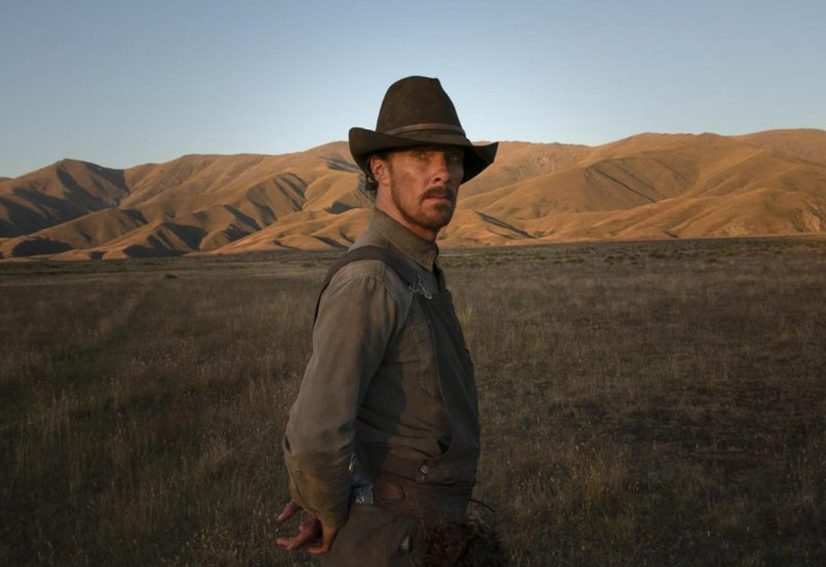While most traditional westerns take place around 1890 or so (when the American frontier was officially no longer deemed unsettled), Jane Campion’s gripping, brilliantly acted The Power of the Dog begins in 1925. We know this because brothers Phil (a mesmerizing Benedict Cumberbatch) and George (Jesse Plemons) get nostalgic during a cattle drive, and reminisce about where they started. Mild George clearly embraces modernity in style and manner, while ornery Phil seems stuck in the past. He hates to bathe and wears formal clothes. Phil also spends his time poking fun at those he thinks are beneath him (he calls George “fatso”), hanging with his bevy of worshipful ranch hands, and rehashing stories from years ago.
Still, Phil and George at first seem perfectly happy with their “Odd Couple” routine—until tension percolates when George meets prim and proper Rose (Kirsten Dunst), the widowed owner of a local inn. She’s strong-willed but sensible, and despite Phil’s palatable disdain for both her and her mousy son Peter (Kodi Smit-McPhee), George marries her, and mother and son move to the brothers’ ranch.
Adapted from Thomas Savage’s 1967 novel, The Power of the Dog, Oscar-winner Campion’s first film in 12 years, moves along at its own deliberate pace, revealing its characters and their changing relationships in five chapters. Phil is abusive, gruff, and spoiled, which makes him an enticing study. The question of why he’s so cruel is at the center of the film; something that is explored only through what Phil will admit to himself.
There are a lot of moving parts here. The Power of the Dog weaves from one relationship to the next, beginning with Phil and George, later George and Rose, and then Peter and Phil—and the intrigue remains constant throughout.
Visually, the film is unparalleled. Early 20th-century Montana is played by Campion’s native New Zealand, and its vast emptiness is a wonder. The Power of the Dog might be cinematographer Ari Wegner’s (Zola) starkest artistic palette thus far, and she was clearly up to the challenge of conveying how open and untamed this land is. The contrast between George looking forward and Phil looking back is shown not only through what they say and wear, but where they are, and what it feels like to be around them. Wegner and Campion (The Piano) make each frame a full assault on human perception, and they make it look awfully pretty in the process.
Plemons and Dunst are excellent, but Cumberbatch owns this film. He inhabits the character to an extent that borders on haunting, and he disappears entirely into the surly cattleman—from each drag of a cigarette to his snide and tormenting attitude toward Rose. Phil is more than meets the eye, but he works hard to keep people from ever discovering that.
While the politics are occasionally stale, and a character arc or two a bit simplistic, The Power of the Dog is a cinematic triumph; one of the best films of 2021. It is vivid, intriguing, contemplative, entertaining, and capped off with one of the most discussable endings in recent memory.
The Power of the Dog
R, 125 minutes
Netflix, Alamo Drafthouse Cinema
